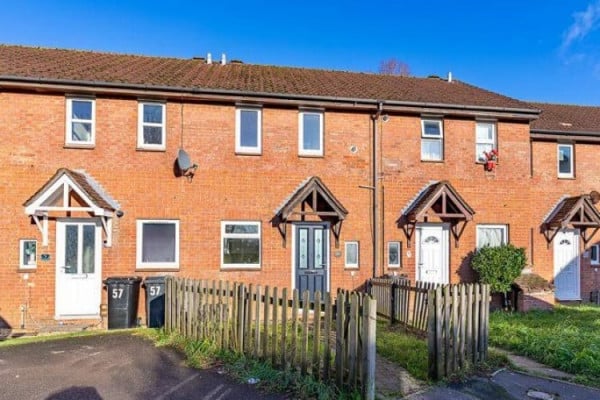First Time Renters Guide
1.png)
What You Need to Know Before Moving Day
Renting your first home can be exciting - and a little overwhelming. This guide will walk you through every step, from budgeting and property searches to contracts, deposits, and move-in day. You’ll learn what to watch out for, what questions to ask, and how to protect yourself so you can start your tenancy with confidence.
What research should you do before starting your rental search?
Good renting starts with good research.
Spend time exploring the area at different times of day - check out things like parking, noise levels, public transport, nearby amenities and overall atmosphere. If you’re still at the viewing stage, our guide on How to Book a Property Viewing will help you prepare the right questions and make the most of each visit.
Compare similar properties in the area so you can judge whether the rent is fair or if you’re paying above market rate. Look into the landlord or letting agent’s track record too - prompt maintenance, good communication and transparency make a huge difference to your rental experience.
For a deeper dive into the essentials you should inspect and evaluate, see our article on What Tenants Should Check Before Renting.
How do you work out what rent you can afford?
When renting a property, it is always important that you choose a property that you can afford, make sure you know exactly what is included in the rent before signing the contract. For example, does the rent include council tax or water rates, if not then it may be useful to work out how much extra this will cost as it all adds up at the end of the month. Late or missed rent can harm your rental references and future applications - something first-time renters should be especially careful to avoid.
What questions should you ask before you sign a tenancy agreement?
Most rented accommodation requires a security deposit to be put down before you can move in. For tenancies that started after 6th April 2006 the deposit must be registered with a government- backed tenancy deposit scheme such as The Deposit Protection service or The Tenancy Deposit Scheme. They ensure you get your deposit back if you have not defaulted on any terms of the tenancy. Details of deposits together with their terms should be included in your tenancy agreement. Since the Tenant Fees Act came into force on the 1st June 2019, landlords can only ask for a maximum of 5 weeks rent as a deposit for properties with an annual rent of below £50,000 per year, above this amount is capped at 6 weeks.
You can also explore more tenant-focused advice and legal guidance in our Tenant Guides section.
What checks and paperwork do you need before move-in day?
Never rely on verbal agreements alone. Always ensure key information is documented. There are certain documents that a landlord must give their tenant by law, these include:
- A signed tenancy agreement
- The government’s ‘How to Rent’ checklist
- Energy Performance Certificate (EPC)
- Gas Safety Certificate (if gas is supplied)
- Deposit protection details
- The landlord or agent’s contact information
You should also receive a detailed inventory, ideally with photographs, showing the condition of the property before you move in. This is crucial when it comes to getting your deposit back at the end of the tenancy.
For further clarity on inspections and documentation, see our resource on The Importance of Tenant Checks.
In Summary:
- Do your homework on the neighbourhood — check parking, noise and comparables.
- Choose a rental you can afford and clarify what’s included in the rent (council tax, utilities etc.).
- Understand deposit rules: must be registered, capped at 5 weeks (below £50k rent) or 6 weeks above.
- Get all agreements and documents in writing — tenancy agreement, inventory with pictures, gas safety, EPC etc.
Helpful Resources
How to Book a Property Viewing
What Tenants Should Check Before Renting

What Tenants Should Check Before Renting: A DIY Guide to Smarter Choices
25.08.2025Renting your next home? Whether it’s your first time or you’ve moved before, there are key things to check before signing a tenancy agreement. Emoov’s guide for renters walks you through costs, safety checks, and the right questions to ask … so you can rent smarter and avoid regrets later.

The Importance of Tenant Checks: A Guide for Tenants and Landlords
27.02.2025Finding the right tenant is one of the most important steps in ensuring a smooth tenancy. A thorough tenant check not only protects landlords from potential financial and legal issues but also helps tenants present themselves as reliable and responsible renters. Below, we provide a detailed, step-by-step guide for both tenants and landlords on what these questions mean, why they matter, and how to conduct thorough checks.
.png)
How to Book a Property Viewing
29.06.2022Learn how to search for properties, book viewings, and manage appointments online with Emoov. Arrange, reschedule, or cancel viewings anytime from your dashboard.









